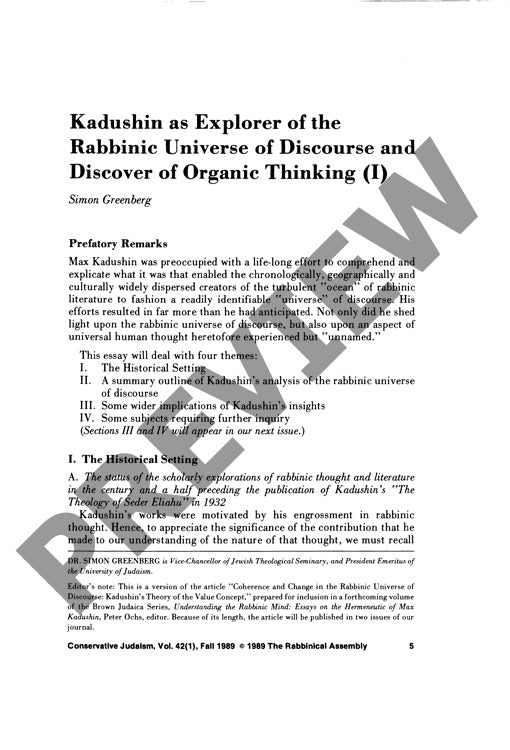Kadushin as Explorer of the Rabbinic Uni
Couldn't load pickup availability
Max Kadushin revolutionized our understanding of rabbinic thought by uncovering "organic thinking" as its fundamental organizing principle—a discovery that transcended traditional scholarly approaches spanning from Moses Mendelssohn to George Foot Moore. Breaking from the rigid analytical frameworks of his 18th through early 20th century predecessors, Kadushin recognized rabbinic concepts as dynamic "value concepts" rather than fixed cognitive or scientific constructs. These concepts, he argued, resist precise definition while generating their own practical manifestations in religious life. At the heart of his analysis lie four foundational concepts—God's loving kindness, God's absolute justice, Torah, and Israel—which weave through and shape all other rabbinic ideas. Through meticulous methodological investigation, Kadushin demonstrated how organic thinking creates unity through mutual interrelation rather than logical systematization, with the whole entering into each constituent part. This framework elegantly resolves apparent contradictions in rabbinic literature and explains the "indeterminancy of belief" characteristic of rabbinic Judaism. Beyond illuminating rabbinic thought, Kadushin's work reveals a previously unidentified mode of universal human cognition, offering profound insights into religious discourse and value-based thinking systems more broadly.

More Information
-
Physical Description
-
Publication Information
Published 1989
ISBN
-
Publication Credits
Simon Greenberg

